Estimated reading time: 9 minutes
When it comes to homesteading, learning to expect the unexpected is crucial. No matter how many self-reliance skills you possess, things will run awry and epic failures will occur — far more often than some homesteaders are willing to admit.
If I could go back in time a few years, I wouldn't change our decision to purchase a fixer-upper 56-acre farm, but I sure would do a lot of things differently.
Want to save this post for later? Click Here to Pin It On Pinterest!
To be a successful homesteader, you need to have five personal characteristics:
- Patience
- Planning
- Adaptability
- Perseverance
- Organization
With that in mind, here are five things I wish I'd known before I started homesteading…
1. It’s Best to Master Homesteading Before Launching A Home-Based Business
Never, ever, under any circumstances, launch into a homesteading money-making endeavor during your first year. Even if you lucked into an already perfectly situated and functional homestead, you must learn how to work it and how much time and money it will take before attempting to earn money off your labors.
This valuable and stress-saving tip applies to every new homesteader, even folks who have operated a small or home business before.
I'm not saying it's impossible to make money homesteading. There are many ways to make money with your homestead, but give yourself at least one year to get settled in.
2. Failure is Inevitable, and That’s Okay
Murphy’s Law seems to have been coined with homesteaders in mind. During our first full year on the homestead, Mother Nature unleashed her fierce power during every single season. Actually, we didn’t even have a spring or fall, not really. We went from winter to summer and experienced historic ice storms, historic flooding, record-setting heat, and near drought conditions.
Not only did the weather take a toll on our wallet, it also caused a significant increase in our homestead workload. Grass did not begin growing in our region of Appalachia until nearly May — two months behind schedule. This meant the livestock all needed extra hay and grain for more than 60 days.
We also had to construct some temporary fencing (fencing = time + money) to keep the livestock out of their pasture to stop the grass that had popped up from being eaten down to the root and deterring new growth the entire season.
The flooding got our lower pasture, which meant we not only had a lot of cleanups to contend with, we had less hay for the coming winter. The winter seemed like it would never end and caused a delay in new growth, which meant we only got two cuttings from our prime hay fields instead of three. Less hay being grown means more hay that will have to be purchased come winter.
The winding uphill half-mile dirt-and-gravel driveway, which traverses a creek to reach our home, also took a lot of time and money to repair and maintain after the plethora of winter storms and spring flooding.
Dealing with inclement weather is just one (major) reason why you should not take on any homesteading business endeavors during your first year on the land. Contending with bug infestations that can ruin your crops as well as livestock illnesses, births, and injuries, are also time-consuming and potentially money-draining tasks.
If you have never grown crops before or are vastly expanding cultivation areas after moving onto a homestead, you will likely be surprised at how many more hours it takes to till, weed, treat, harvest, and preserve your hopefully bountiful yields.
My point is, many of your ideas and projects will fail, but that is the only way you learn. Don’t ever let it get you down or make you want to give up. Instead, be happy that now you know something you didn’t know before.
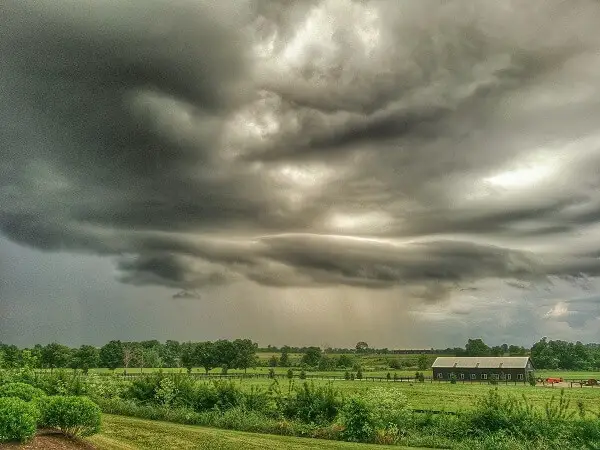
3. You Should Plan for Every Possibility
Even the best-laid plans can (and often will) fail, but neglecting to plan for both short and long-term projects of any type will almost always result in negative results on a homestead.
Putting an extension on a chicken run might sound like a relatively inexpensive and quick project — one that could be accomplished in a single weekend — but Mother Nature and homesteading karma might have other plans.
If you fail to not only watch the weather forecast but learn how to interpret the sights, sounds, smells, and feeling of coming storms, you could be in the middle of your project and be forced to abandon it for days.
A newbie homesteader might not yet grasp how long it will take livestock to go through a pile of hay bales, how long it takes to bale a field, or how to tell if a pregnant member of a herd is nearing her time to give birth — as well as how long that will take and what to do if the animal needs help.
A sudden vet bill to save an animal and her young could easily make the supposedly inexpensive chicken run expansion very ill-timed.
4. If You Bite Off More Than You Can Chew, It WILL Come Back To Haunt You</h3
Resist the urge to buy every animal you ever wanted to own. I love all of my critters, the ones we are going to eventually eat and the ones who get to live out their lives on our land.
But if I had purchased all of them at once, they either wouldn't have survived or they at least wouldn't have thrived. I am a devoted free ranger. I believe it is the healthiest, most natural, and least expensive way to raise livestock — including rabbits.
Before I could allow our livestock to roam free, some essential things had to happen first:
- Teaching predators farm avoidance
- Learning what predators we could legally trap or kill — and how to do it
- Learning how to identify predator tracks and sign
- Teaching the livestock how to free range — learning their boundaries
For more information on homestead predators, check out my article, 10 Predators To Beware Of On Your Homestead.
Even when all four monumentally important tasks are learned, there will still be animal losses. You must prepare yourselves (and your children) for that fact as well as learning how to do basic livestock first aid.
Taking care of a living creature is a massive responsibility. Learning proper husbandry techniques for every type of animal you keep as well as stocking up on the homestead tools, supplies, and medical gear you will need to keep them healthy (and safe to eat) will be both expensive and time-consuming.
Start small and build up your barnyard slowly. Only once you have become adept at caring for your current livestock and stockpiling all the supplies you need for them should you purchase more.
This same premise holds true when it comes to gardening. Not every patch of dirt, no matter how beautiful, is suitable for cultivating crops. You must learn how to test your own soil and how to enhance it, all while caring for, harvesting, and preserving the food you have spent so much time growing.
There is no shame in not using every single inch of potential growing space, or allowing stalls and pens to remain either empty or half full, during your first few years of homesteading.
It is far better to have empty space than it is to lose animals or the crops you spent countless hours growing, or a huge sum of money.
5. Setting a Budget and Sticking To It is Crucial
Set a budget and stick to it no matter what. Sitting down and planning out your entire first year on the homestead, from both a time and money perspective, will most likely save copious amounts of future heartache and stress.
Sure, it's very hard to turn down a great deal on a horse of your dreams, a new-to-you hay wagon, or a handy 4-wheeler trailer, but you can live without all of those things. What you cannot live without is the money you will need to pay your electric bill.
Create a budget that allows for a specific amount of discretionary spending so you can take advantage of great deals when possible, but only if you can do it without dipping into another line item or whipping out your credit card.
If your well pump goes bad, you need a vet, or a tractor breaks down, you’re gonna need that credit card to have as much of an available spending line as possible.
Do not bank on money you expect to earn from a homesteading business on down the line to make up the difference — this could be the year Japanese beetles are relentless in their attacks and destroy the very crop you were going to take to the farmer’s market to replenish the money you spent months before.
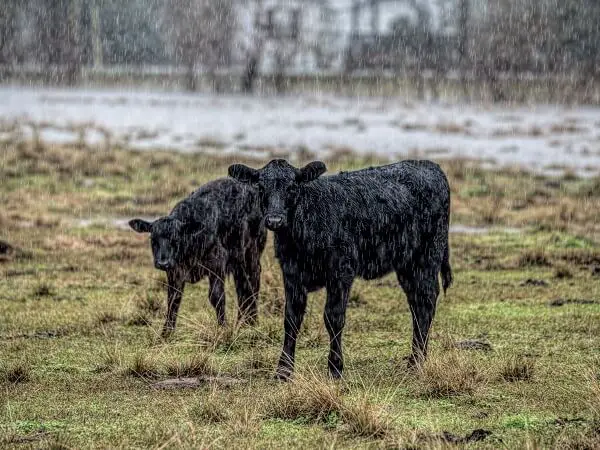
Bonus Tip: Always Celebrate Little Victories, They Are Sometimes Few And Far Between
Homesteading, much like football, is a game of inches. The stress level during the first year on the homestead will be high, especially during the growing season — even if you only planted a small plot of crops.
Take a moment out of the long days that homesteading continually requires to pat yourself and your loved ones on the back for a job well done or a goal accomplished.
If you go a whole week without losing a free-range chicken to a predator, finish weeding the growing plots before dark, or put your first jars of canned wild blackberries on a shelf, take a few minutes to note the moment of success — doing so will help get you through the next round of frustrating, hard, dirty and sore muscle provoking chores.
Eventually, you will feel like you are running a homestead instead of a homestead running you. That is when you know you have surpassed newbie status and are ready to start using the land to make money, buy more livestock, or take on a large expansion project.
As C.S. Lewis once said, “Experience is a brutal teacher, but you learn…my God do you learn”
We learn from both our trial and error sessions and outright painful failures. The one thing I would not change the least little bit from our first year on the homestead is the experience of it all — the good, the bad, and the really, really ugly (and smelly).
Had we not lived, learned, and then adapted and overcome each hurdle, our patch of heaven would not have become the fully functional slice of heaven that it is today. I only hope my hindsight words of wisdom will help guide you a little bit through your first year of homesteading.
Like this post? Don't Forget to Pin It On Pinterest!



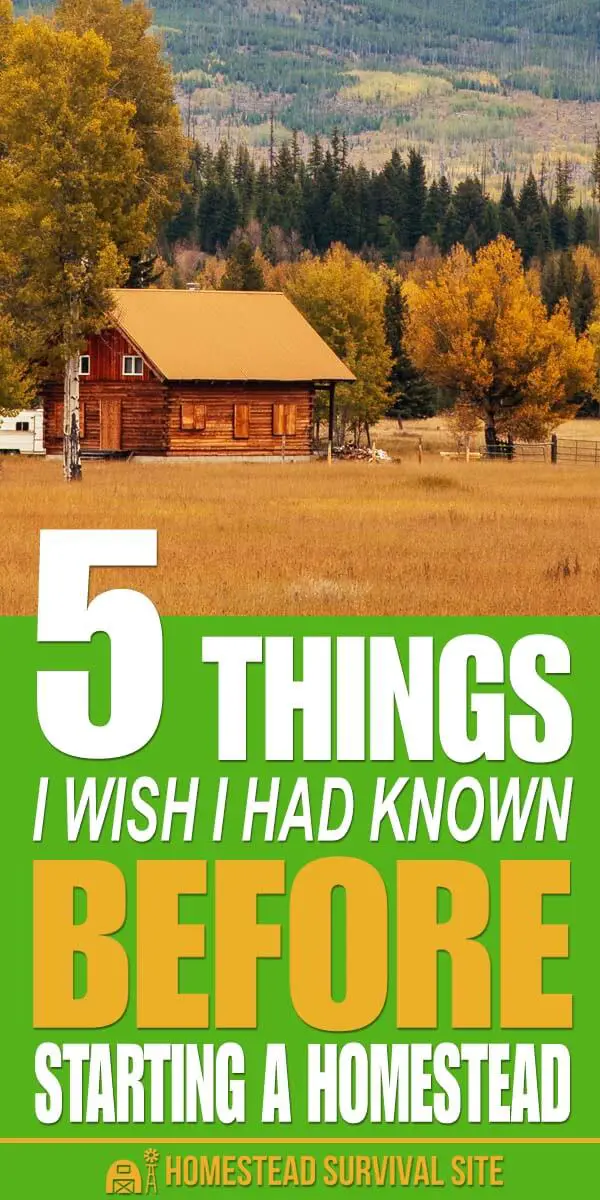




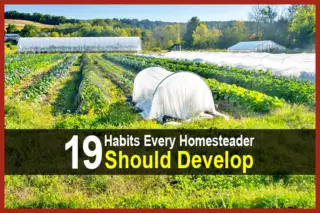
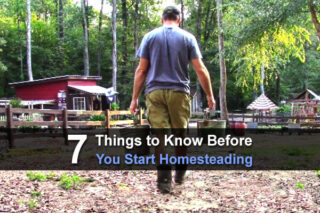


An original, well-written article! Nearly 50 years ago (think back-to-the-land hippies) we became “instant” homesteaders. Looking back I can see we were incredibly lucky to have as few catastrophes as we did and we did have some. Many years & experiences later I am still learning. Hopefully those starting out now will heed your advice.